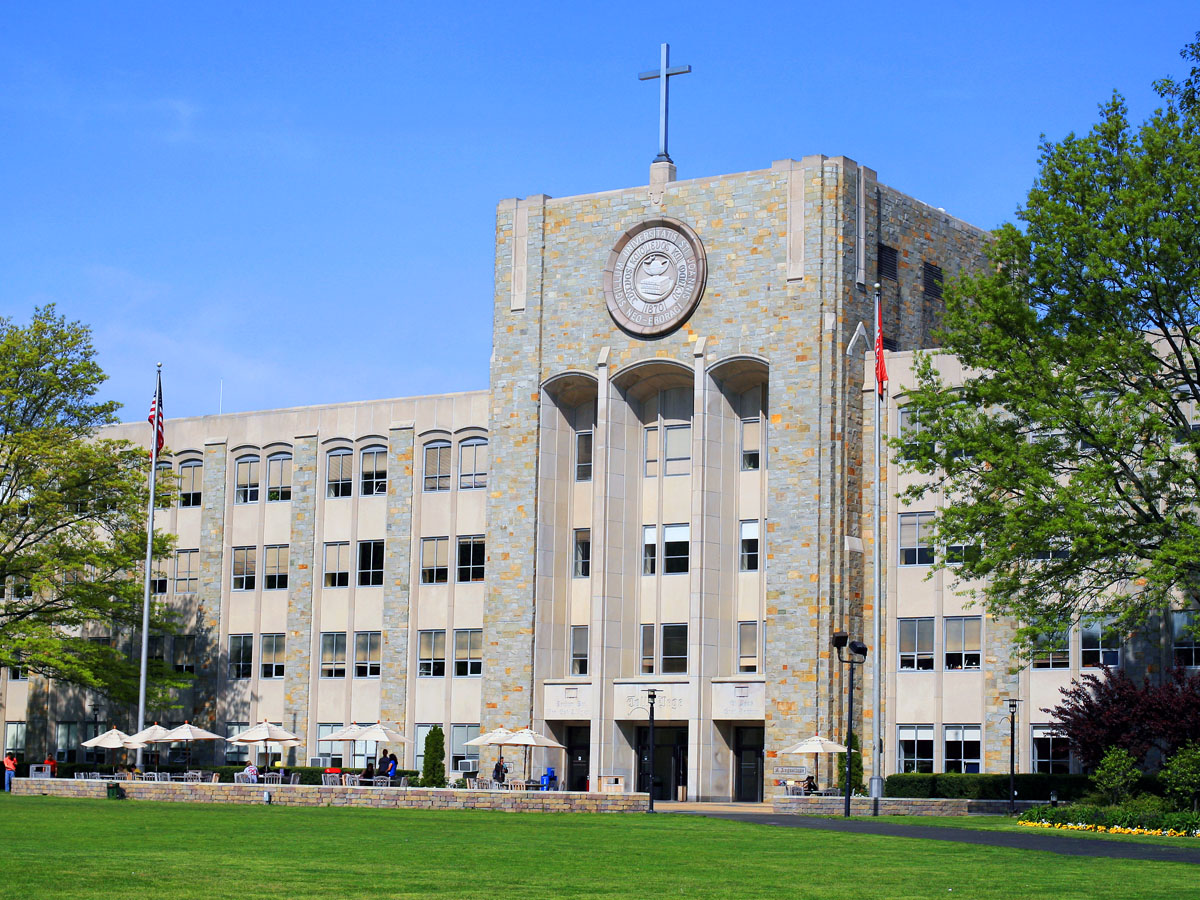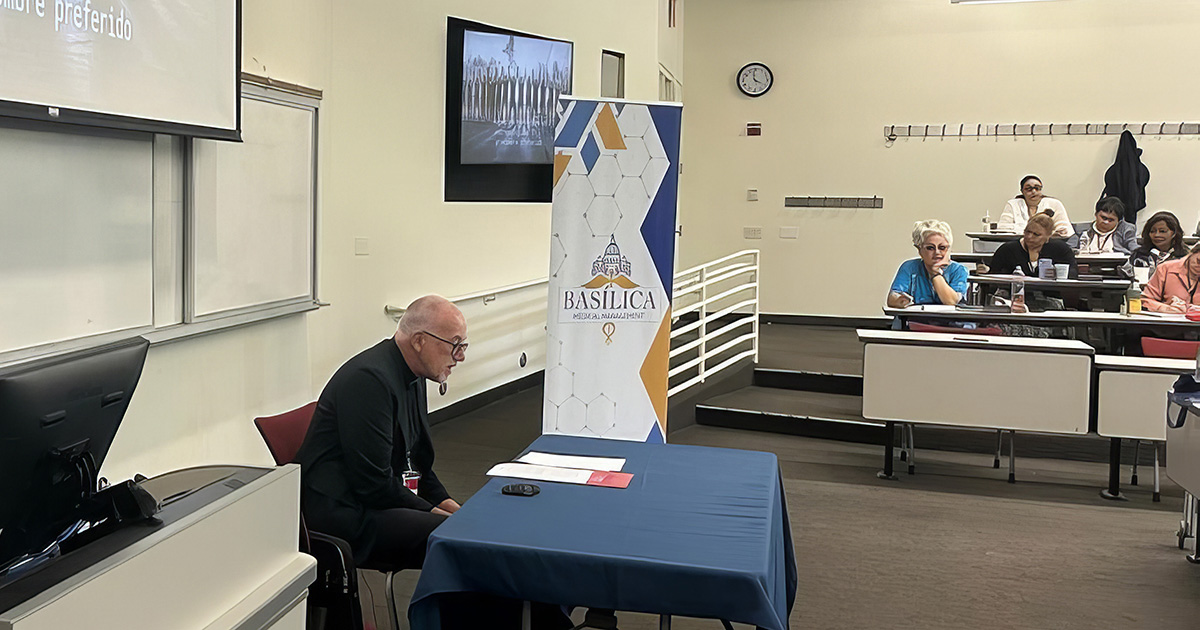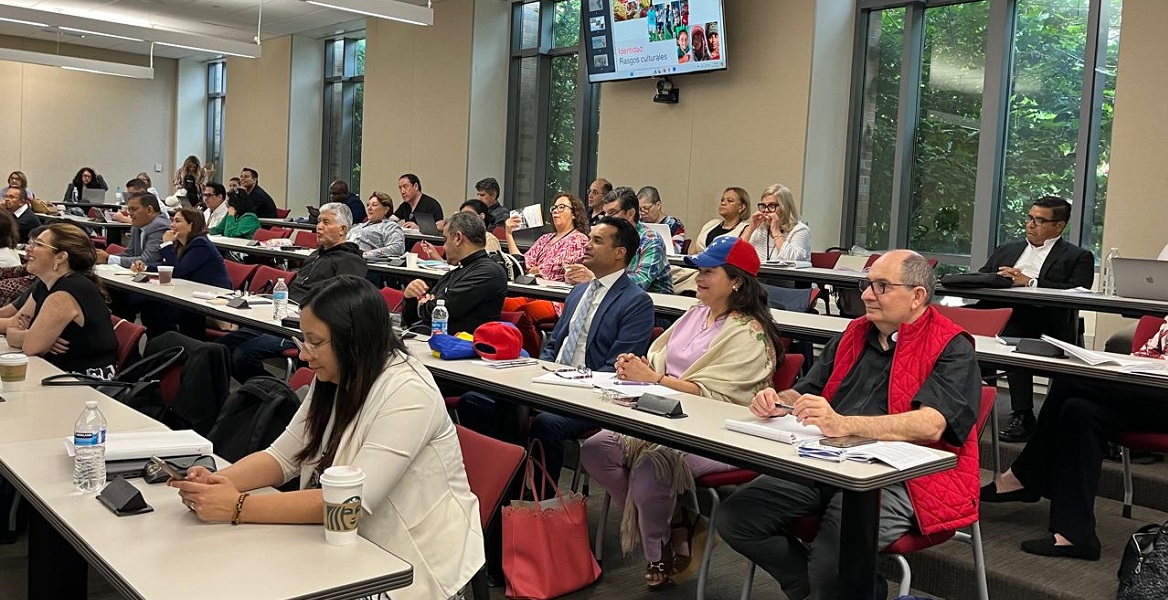St. John’s University in New York Hosted the 9th International Diploma Program of the Catholic Leaders Academy
From July 19 to 28, New York City hosted the 9th International Diploma Program of the Academy of Catholic Leaders. This globally significant event brought together various Latin American leaders in an environment of education and reflection, noteworthy for its academic quality and accompanying programs.

St. Augustine Hall located on St. John’s University’s Queens campus. Source: Wikipedia.
Location and Context
The diploma program was held at St. John’s University, the second-largest Catholic university in the United States, founded by the Congregation of the Mission of St. Vincent de Paul. The location in New York and the university’s infrastructure provided an ideal setting for the event, facilitating access to iconic places such as the 9/11 Memorial and the United Nations headquarters. These visits not only enriched the context of the program but also provided a suitable framework for learning and reflecting on current issues.
Supporting Institutions
The event was supported by institutions such as the Ramón Tallaj Foundation and Somos Community Care, which joined forces to make this initiative possible. Their participation underscored these organizations’ commitment to social welfare and progress.
Academic Program
A central element of the diploma program was the course on the Social Doctrine of the Church, focusing on Integral Human Development that is Solidary and Sustainable. This course allowed participants to analyze the United Nations’ 2030 agenda, exploring both the opportunities and challenges it presents for promoting equitable and sustainable development in the region.
Faculty
The program featured a distinguished international faculty, including eminent figures such as Cardinals Christophe Pierre, Odilo Scherer, and Marc Ouellet. The experience and wisdom of these religious leaders were essential in guiding participants through their learning and reflection process. According to José Antonio Rosas, one of the event’s organizers, the presence of these cardinals added significant academic and spiritual value due to their exceptional faith journey.
In addition to the cardinals, the faculty included renowned international lay leaders such as Miguel Ángel Rodríguez, former President of Costa Rica; Mario Paredes, former advisor for Latin America to the White House; Rocco Buttiglione, former minister of the European Union; Enrique García, former president of CAF Development Bank of Latin America; Fernando Carrillo, former Attorney General of Colombia; Fernando Sánchez, vice president of the International Federation of Catholic Universities; Rodrigo Guerra, secretary of the Pontifical Commission for Latin America; Eduardo Almeida, former director of the IDB in Haiti; and Alejandra Segura, president of the International Network of Catholic Women. These experts provided their insights and experience on crucial issues for human and social development.
Reflections on Poverty
The vice president of St. John’s University, Father Aidan Rooney CM, also participated in the diploma program. During his lecture, Rooney addressed the theological and anthropological aspects of poverty, denouncing “the predatory root of poverty” and calling for “committing life to the evangelization of the poor.” According to Rooney, the Bible repeatedly urges believers to mobilize against poverty, with over a thousand passages addressing this issue. He also emphasized that unjust economic practices never go unnoticed by God and posed a fundamental question for Christians: “Do we live isolated from the poor, or do we live with them?”
Rooney stressed that the poor have much to teach and reminded that St. Vincent de Paul saw serving the poor as a central mission of Christ on earth. He described St. Vincent’s charism as a “multifaceted mystical experience with the poor at the center.”
Impact and Conclusion
The 9th International Diploma Program of the Academy of Catholic Leaders was a meeting, learning, and reflection space where leaders from various fields and backgrounds united in search of solutions for the most pressing challenges of our time, driven by a shared vision of justice, solidarity, and hope. The diversity and caliber of the participants, along with the excellence of the academic program, highlighted the importance of collaboration and commitment in the pursuit of integral and sustainable human development.
This event not only strengthened the formation of Catholic leaders but also promoted a constructive and profound dialogue on how to address inequalities and social issues from a perspective based on the principles of the Church’s Social Doctrine. The active participation and exchange of ideas among attendees were key to the program’s success, establishing a solid foundation for future initiatives and collaborations in the region.
Text based on information from catholic.net and Vida Nueva digital.
Tags:









0 Comments